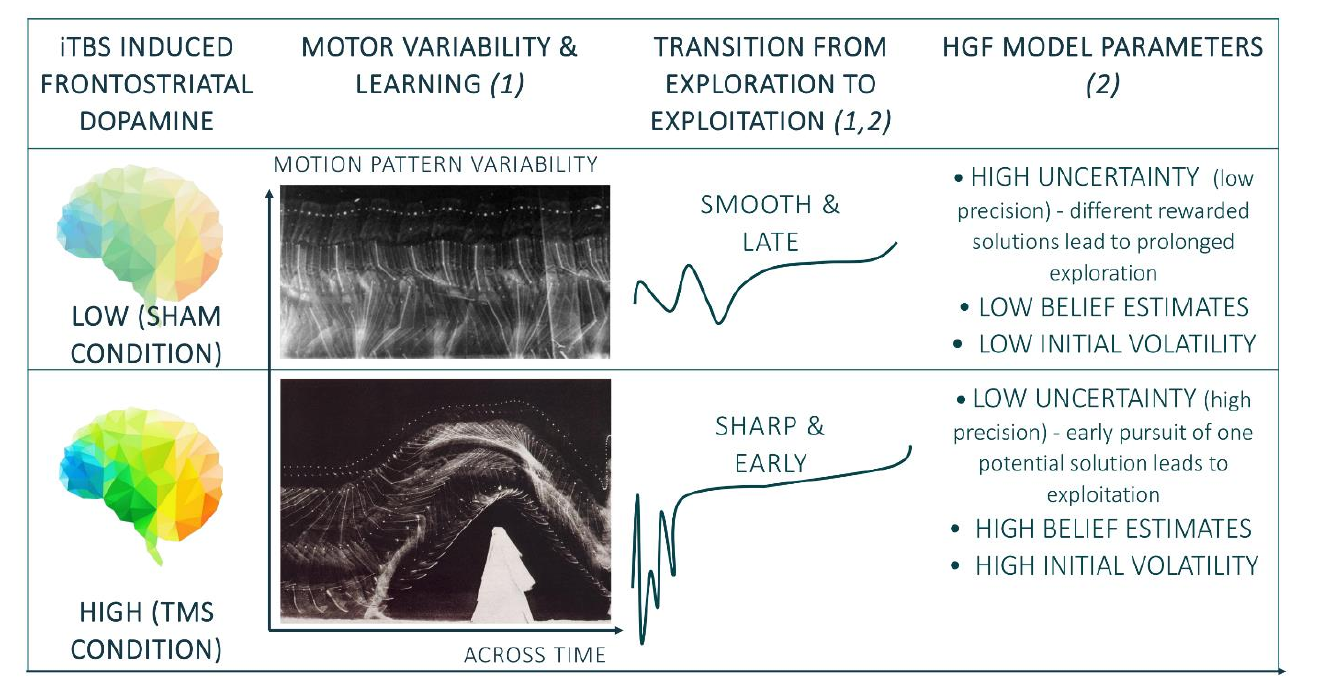Modulation of reward-based motor learning by changes in frontostriatal dopamine release using theta-burst stimulation
Student work
Lena Esther Ptasczynski (2018-19)

This project investigated the role of dopamine in reward-based motor learning and in the regulation of explorative and exploitative motor behaviour in healthy human participants. To address our questions, the student used theta burst stimulation (TBS) over the left dorsolateral prefrontal cortex (DLPFC-TBS), which is a validated protocol that reliably modulates striatal dopamine release in humans and animals. Using a Bayesian modelling approach to explain individual performance during a reward-based motor learning task, this project provided empirical support for intermittent (excitatory) DLPFC-TBS improving motor learning from reward signals in uncertain environments. Enhanced DLPFC-TBS-related frontostriatal dopamine transmission increased learning by shifting the balance between motor exploration and exploitation and reducing the impact of environmental uncertainty on updating motor predictions.